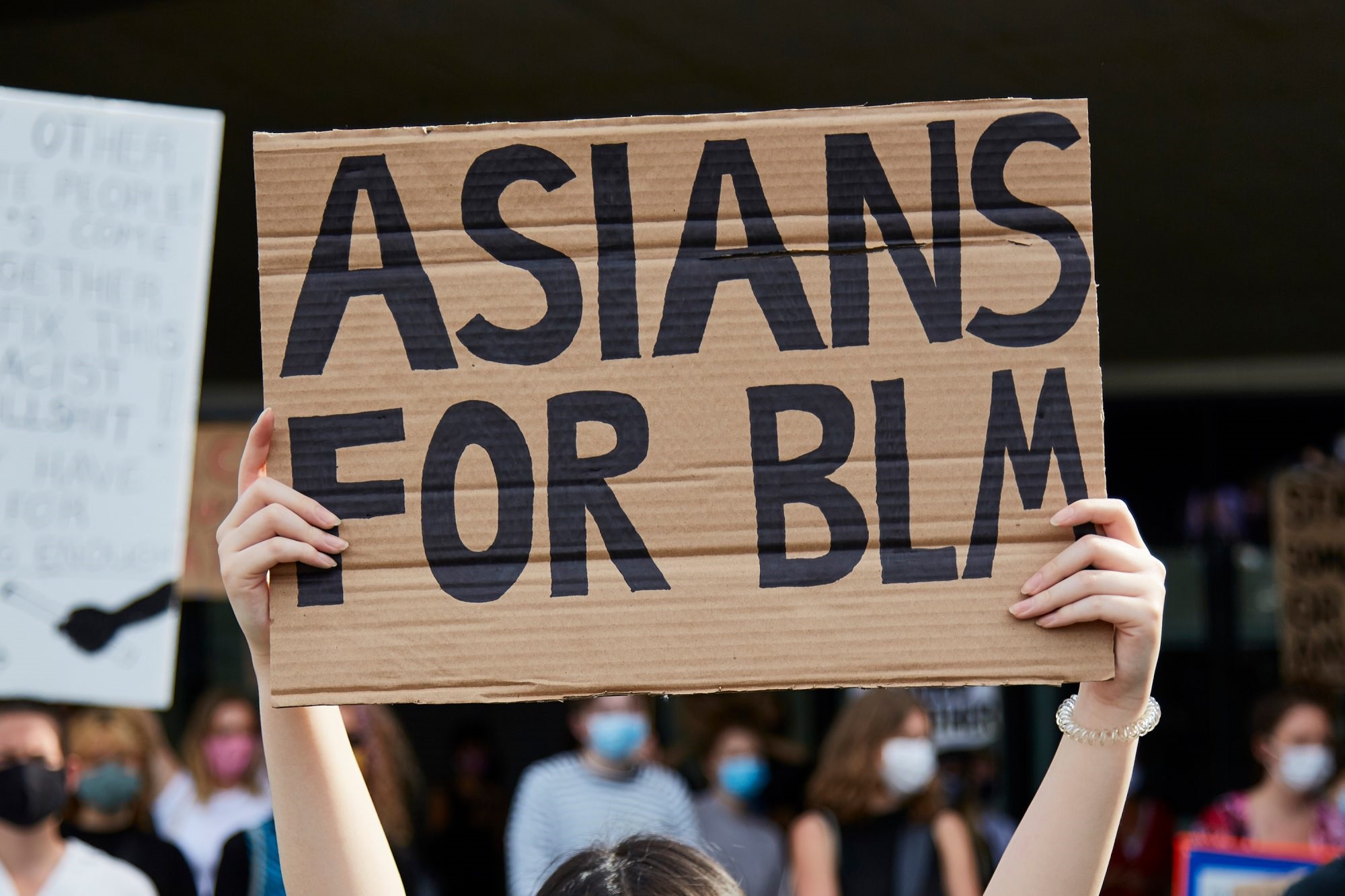A Response: Finding common ground and respect between the black community, Chinese American youth, and the first-generation Chinese American immigrants

Thanks to Eileen, Kalos, the students at Johns Hopkins, and the many commentators on informing and crafting our response to the murder of George Floyd. I am in admiration of everyone who has stayed engaged and open-minded when it is too easy to turn away.
Nine years removed from college graduation date, I can still remember the passion for social issues that burned in my college days. But over time, I have also come to better understand and respect the unique first-generation immigration journey of my parents, which is the dominant journey for Chinese Americans in the U.S.
My message is simple - I believe this intergenerational disconnect can be bridged by empathizing with the immigration stories of our parents, and for all of us to remain open-minded even through discomfort. To quote author Ijeoma Oluo, “our humanity is worth a little discomfort, it’s actually worth a lot of discomfort.”
To my generation of Chinese Americans, liberal and Ivy League-educated, we have obscured the vivid, evil heart of racism with too many abstractions. Racism, as taught in our most prestigious schools, seldom matches the experiences that our parents and grandparents can grasp. Instead, racism has been packaged into dense, laden words like “systemic oppression” or “intersectionality” - words that lose meaning when removed from tangible experience.
And even the histories that we do tell of racism have become increasingly distant and irrelevant to first-generation immigrants in the last thirty years. The Chinese exclusion act was in 1882 and Vincent Chin was in 1982; most Chinese-Americans have little resonance with these events. Without stories and context, racism is thrown around as an epithet that is more likely to provoke defensiveness than productiveness.
Instead, let’s start with a story that is all-too familiar to the most recent generation of Chinese-American immigrants:
My father was born in an intellectual family. In 1984, my father came to this country leaving his wife behind, to pursue better education and a better future. He worked incessantly over the next few years, relying on fellowship and teaching assistant-ship to make ends meet. Although he sensed cultural differences, even prejudice against Chinese students, he did not experience direct discrimination at all. To the contrary, the openness and multiculturalism on university campuses as well as the fact that he received prestigious fellowships throughout his study made him feel the relative openness and fairness of the American society. Job search upon obtaining his PhD degree was hard, but he landed an assistant professor position. He excelled in his job, and was promoted to associate and full professor over the next decade. However, he always seemed to get passed over for senior leadership roles. He bought a home in an upper middle class neighborhood and pounded the value of education into his children’s heads, ensuring that they got the best education possible. His kids never felt comfortable at their nearly all-white schools, but they received a quality education and went on to Yale, Harvard, Duke and Stanford to become doctors and businessmen. Many of my father’s generation have had similar stories. “Glass ceiling” is a subtle form of discrimination they commonly experienced.
What if the story looked like the below instead?
My father was born in poverty, but wished to pursue his dreams of a better future and an education from a young age. He was quickly grouped into a class where teachers expected nothing of him, in a drastically underfunded school, because of the way he looked. In spite of this, he worked incessantly and persevered, rising to the top of his class and going to college as first in his family. He overcame the challenges of being a first-generation college student, and one of his proudest moments was delivering a graduation speech to his class. But the day of his speech was tainted by the fact that the same day, during his graduation celebration, police came in and pointed a gun at his head, mistaking him for someone else - it would be the first of many incidents with the police. As he applied for jobs over the course of a year, he was rejected over and over again because his name sounded too black. He finally found a job that paid him less than others with his credentials, but he took it, and over the years, saved enough to buy a home. However, he was only allowed to buy a home in a specific neighborhood with less funding for schools and worse public services. He pounded the value of education into his children’s homes, but is constantly worried about his kids and whether they would be able to have a brighter future than he. Over the years, several of his close friends and family have died prematurely due to illness and violence, and he reflects on how rare his success has been. The worst of this is that the police, who are meant to protect and serve, seem to actively use violence on his community. He is sick and tired.
As for the original reason why he came? His great great grandfather was sold into slavery.
The two stories are not that dissimilar, except in latter, the number of obstacles that could set a striving young person back is so much more. As demonstrated by links to studies and evidence, this story is closer to the norm than the exception for the black community.
This story above is the default for many black Americans. Going to a majority minority school, I could see these disparities play out every day. Whereas I never got stopped in the halls when I was skipping class, my equally talented black classmates were regularly stopped, sometimes even leading to in school suspension. Whereas I was auto-assigned to the most advanced of classes, my black classmates were more often than not never done so. What would any Chinese American do if their child was treated this way? I am sure at first they would urge the child to do more, but there are only so many times you can blame your child. There are only so many obstacles a community can try to overcome silently before it fights.
Now to the first-generation Chinese Americans, imagine this same cycle repeating generation after generation for your family and children. You can imagine that our proud Chinese values - self-reliance, hard work, family obligation - becoming meaningless. In a broken world, a world that jams a knee into the necks of all past ancestors and all future progeny, the range of possibilities narrow and then fall away. There is only so much pain a community can tolerate before it cracks.
-------
Even then, I could argue that the challenges of the black community is not the responsibility of Chinese Americans. To this, I would argue that injustice anywhere is a threat to justice everywhere. Even in the spirit of self-interest, our arms should be interlocked in solidarity with other minorities, and especially the black community of America.
Let me explain. The fate of all minority groups, including Chinese Americans, worsens gradually, and then suddenly. The last year has been a shock for me, as the president ramps up his rhetoric on the “Chinese virus”, and the rate of hate crimes against Chinese Americans has spiked. Already, the study visas of Chinese students have been rejected with increasing frequency.
If the systemic oppression of the black community is possible, the systemic oppression of the Chinese American and larger Asian American community is never far away. The tides of history can turn in a matter of years. We forget how quickly the Nazis came to power, how quickly the Chinese were exterminated in Cambodia, how quickly Donald Trump has scapegoated the Chinese people on coronavirus. Racism affects us all.
Politics is the art of coalition-building and finding common interests among a diverse group of people. I empathize with Eileen’s disappointment in the Chinese Community for its silence on recent events. But underlying this sentiment is what I see as an opportunity for civic and political engagement that goes beyond issues that immediately affect one’s own family.
To the first-generation immigrants reading this, I ask only that you stay open, through discomfort, on the conversation about race and George Floyd to younger people, black community members, neighbors, and a diverse slate of perspectives.
Like many others, I am also excited for a strong Chinese American identity, but one that turns a curious mind and an open heart to the difficult history of all minority groups in the country. I hope that with open-minded engagement, we find that we cannot afford to stand divided with our family in the black community.
Author is an alumni of Yale University and Stanford’s Graduate School of Business. He currently works in technology in San Francisco.

评论 3
加入讨论
请登录后发表评论
Jane
确认操作
Charles
确认操作
Michael Zhang
确认操作